BOOKS

The Nest in the Stream: Lessons from Nature on Being with Pain
– Michael Kearney MD, 2018
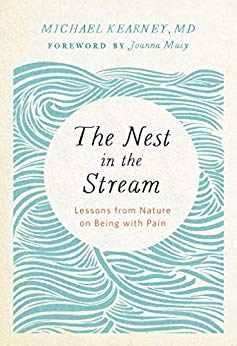 A concise and inspirational book for anyone dealing with pain by a long time palliative care doctor who is greatly inspired by Native American wisdom and the natural world. This book is a celebration of impermanence and what it means to be awake, alive, and connected to the world.
A concise and inspirational book for anyone dealing with pain by a long time palliative care doctor who is greatly inspired by Native American wisdom and the natural world. This book is a celebration of impermanence and what it means to be awake, alive, and connected to the world.
The Nest in the Stream is an encouraging and inspiring book for the times we live in. Michael Kearney, a physician whose day job is alleviating the pain and suffering of others, shows that how we live with our pain matters hugely, as it affects our quality of living and our capacity to find healing for ourselves, for others, and for our world. Drawing on engaged Buddhism, the indigenous wisdom of Native American and Celtic spirituality, and the powerful teachings he gained by observing nature, Kearney presents a new model for resilience and self-care.
Traditional models of self-care emphasize the importance of professional boundaries to protect us from stress, and time out to rest and recover. The Nest in the Stream offers a way of being with pain that is infused with mindfulness, openness, compassion, and deep nature connection that encourages us to act for the freedom and welfare of all. It will appeal to those whose everyday occupation involves dealing with pain, such as healthcare workers, environmental activists, or those working on the front lines of trauma, but it will also be of interest to everyone who longs to live in our wounded world with an open heart.
Mortally Wounded: Stories of Soul Pain, Death, and Healing
– Michael Kearney, 2007
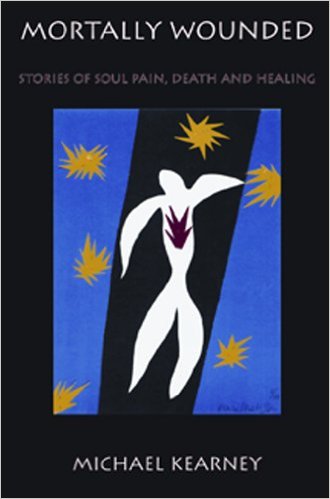 What makes for a good death? In Mortally Wounded, a bestseller in Ireland, where it was first published, Dr. Michael Kearney reflects on his personal experiences working with the dying and shows us that it is possible to learn to die well. Starting from the premise that our fear of death is as much a cultural construct as an ancient fear of the dark, Kearney moves into the area in which it is possible to die well or “in one piece, psychologically speaking.” Exploring some of the same territory as James Hillman and Thomas Moore, Kearney emphasizes the importance of going downward into soul, where we can find the elements of psychological wholeness, a healing balm to be applied to our mortal wound. Sensitive, intelligent, and brutally honest, Kearney opens a window on our darkest, most difficult subject, and lets some light in.
What makes for a good death? In Mortally Wounded, a bestseller in Ireland, where it was first published, Dr. Michael Kearney reflects on his personal experiences working with the dying and shows us that it is possible to learn to die well. Starting from the premise that our fear of death is as much a cultural construct as an ancient fear of the dark, Kearney moves into the area in which it is possible to die well or “in one piece, psychologically speaking.” Exploring some of the same territory as James Hillman and Thomas Moore, Kearney emphasizes the importance of going downward into soul, where we can find the elements of psychological wholeness, a healing balm to be applied to our mortal wound. Sensitive, intelligent, and brutally honest, Kearney opens a window on our darkest, most difficult subject, and lets some light in.
The Nature Fix: Why Nature Makes Us Happier, Healthier, and More Creative
– Florence Williams, 2018
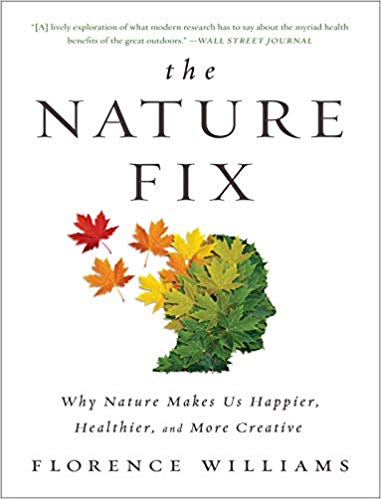 From forest trails in Korea, to islands in Finland, to eucalyptus groves in California, Florence Williams investigates the science behind nature’s positive effects on the brain. Delving into brand-new research, she uncovers the powers of the natural world to improve health, promote reflection and innovation, and strengthen our relationships. As our modern lives shift dramatically indoors, these ideas―and the answers they yield―are more urgent than ever.
From forest trails in Korea, to islands in Finland, to eucalyptus groves in California, Florence Williams investigates the science behind nature’s positive effects on the brain. Delving into brand-new research, she uncovers the powers of the natural world to improve health, promote reflection and innovation, and strengthen our relationships. As our modern lives shift dramatically indoors, these ideas―and the answers they yield―are more urgent than ever.
The Wounded Healer – Ministry In Contemporary Society
– Henri J. M. Nouwen, 2019
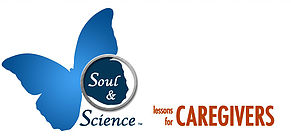
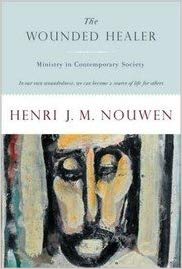 The Wounded Healer is a hope-filled and profoundly simple book that speaks directly to those men and women who want to be of service in their church or community, but have found the traditional ways often threatening and ineffective. In this book, Henri Nouwen combines creative case studies of ministry with stories from diverse cultures and religious traditions in preparing a new model for ministry. Weaving keen cultural analysis with his psychological and religious insights, Nouwen has come up with a balanced and creative theology of service that begins with the realization of fundamental woundedness in human nature. Emphasizing that which is in humanity common to both minister and believer, this woundedness can serve as a source of strength and healing when counseling others. Nouwen proceeds to develop his approach to ministry with an analysis of sufferings — a suffering world, a suffering generation, a suffering person, and a suffering minister. It is his contention that ministers are called to recognize the sufferings of their time in their own hearts and make that recognition the starting point of their service. For Nouwen, ministers must be willing to go beyond their professional role and leave themselves open as fellow human beings with the same wounds and suffering — in the image of Christ. In other words, we heal from our own wounds. Filled with examples from everyday experience, The Wounded Healer is a thoughtful and insightful guide that will be welcomed by anyone engaged in the service of others.
The Wounded Healer is a hope-filled and profoundly simple book that speaks directly to those men and women who want to be of service in their church or community, but have found the traditional ways often threatening and ineffective. In this book, Henri Nouwen combines creative case studies of ministry with stories from diverse cultures and religious traditions in preparing a new model for ministry. Weaving keen cultural analysis with his psychological and religious insights, Nouwen has come up with a balanced and creative theology of service that begins with the realization of fundamental woundedness in human nature. Emphasizing that which is in humanity common to both minister and believer, this woundedness can serve as a source of strength and healing when counseling others. Nouwen proceeds to develop his approach to ministry with an analysis of sufferings — a suffering world, a suffering generation, a suffering person, and a suffering minister. It is his contention that ministers are called to recognize the sufferings of their time in their own hearts and make that recognition the starting point of their service. For Nouwen, ministers must be willing to go beyond their professional role and leave themselves open as fellow human beings with the same wounds and suffering — in the image of Christ. In other words, we heal from our own wounds. Filled with examples from everyday experience, The Wounded Healer is a thoughtful and insightful guide that will be welcomed by anyone engaged in the service of others.